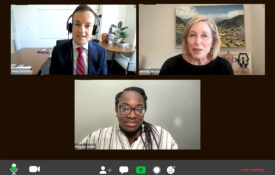-

New Research From Clinical Psychological Science
A sample of research on suicidal ideation, sex-related substance use among gay and bisexual men, the importance of collaborative decision-making, and much more.
-
Can Tracking Your Moods Make You Happier?
Tracking daily steps can motivate us to walk more. Tracking sleep can reveal problems such as sleep apnea. Can tracking our moods make us happier? There are now many tech ways to log where you fall on the happy-sad spectrum each day. Fitbit offers mood logging in its stress-management tool. Period-tracking apps, such as Clue and Flo allow women to see how their moods fluctuate with their cycles. Apps like Daylio focus on mood. The latest big player to enter the arena is Apple. Its latest software updates—iOS 17, iPadOS 17 and WatchOS 10, due this fall and already out in public beta—include a way to log your state of mind.
-
The Barbie-Taylor-Beyoncé Summer Offers a Release of Pandemic Emotions
... The summer’s major cultural phenomena — which also include Taylor Swift’s Eras concert tour and the “Barbie” and “Oppenheimer” movies — have attracted audiences ready to go all-out. Thanks to a wide range of social, cultural and economic factors, it’s a season of hype as well as dress-up, fun and freedom. For some, it is also tied up with the pandemic, perhaps another chance to check off a post-covid “first,” feel like they’re living life to the fullest or celebrate that they’re okay with screaming song lyrics in a crowd of 70,000 people again.
-
A ‘Failure to Launch’: Why Young People Are Having Less Sex
Vivian Rhodes figured she would eventually have sex. She was raised in a Christian household in Washington state and thought sex before marriage would be the ultimate rebellion. But then college came and went — and no sex. Even flirting “felt unnatural,” she said. In her early 20s, she watched someone she followed on Tumblr come out as asexual and realized that’s how she felt: She had yet to develop romantic feelings for anyone, and the physical act of sex just didn’t sound appealing. “Some people assume this is about shaming other people, and it’s not,” said Rhodes, 28, who works as a certified nursing assistant in Los Angeles. “I’m glad people have fun with it and it works for them.
-

Career Crossroads? How to Map Your Journey Beyond Academia
A wide range of companies, organizations, and government agencies need psychological scientists. Tips from insiders on how to navigate the journey.
-

Has Academia Become More Gender-Fair for Women? Findings From an Adversarial Analysis of Gender Bias
“Happily, the realities of today no longer support the belief that [STEM] jobs are pervasively biased against women.” But the findings come with caveats. New Psychological Science in the Public Interest.

